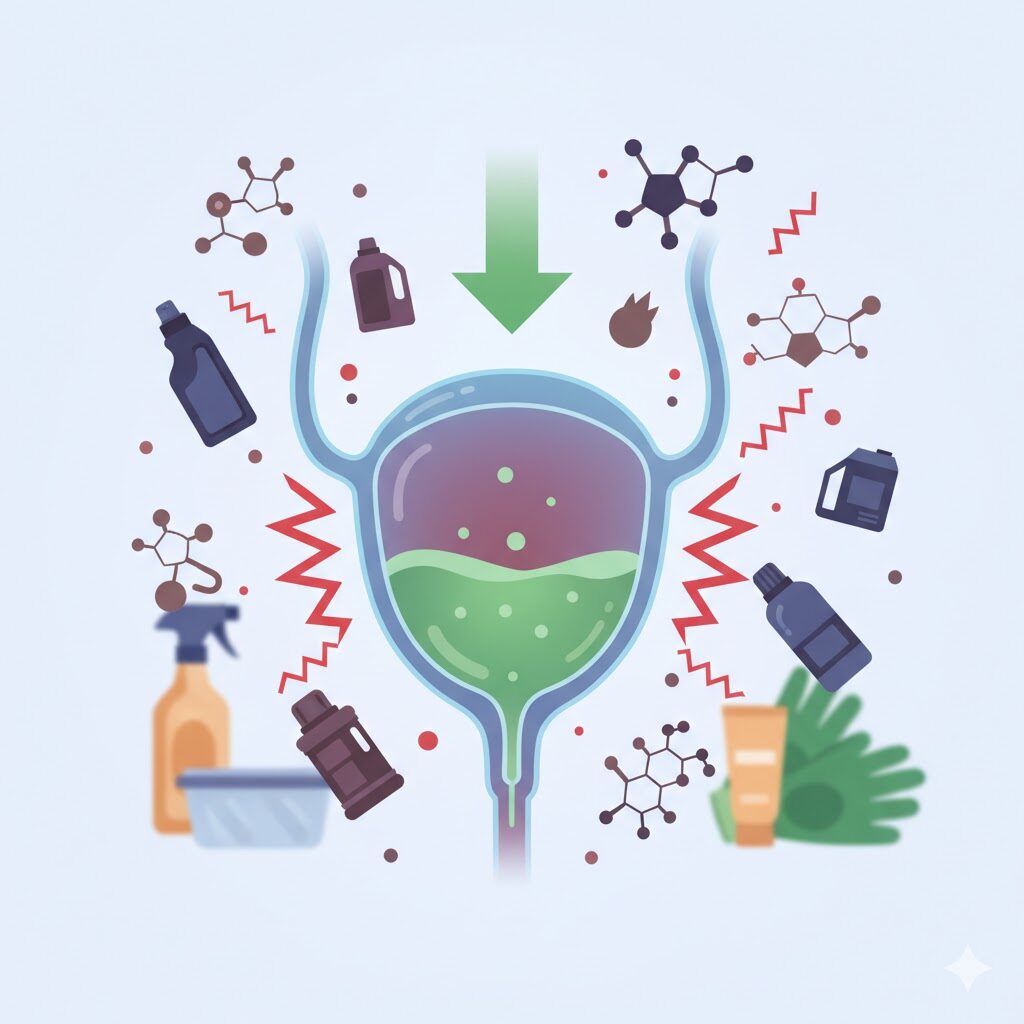We often think about our diet, exercise, and genetics when it comes to our health, but what about the silent invaders in our everyday lives? The chemicals that surround us – in our cleaning products, personal care items, and even our food packaging – could be having a detrimental effect on our urinary system, specifically our bladder.
The Unseen Threat: Everyday Chemical Exposure
From the moment we wake up, we’re exposed to a barrage of chemicals. We brush our teeth with toothpaste containing fluoride and other compounds, clean our homes with harsh detergents, and sometimes even eat food that has been stored in plastic containers. While many of these chemicals are deemed “safe” in small quantities, cumulative exposure over time can pose a risk.
How Do These Chemicals Reach Your Bladder?
Our bodies are incredibly efficient at filtering out waste and toxins, with the kidneys and bladder playing a crucial role. When we ingest or absorb chemicals, they enter our bloodstream. As the blood is filtered by the kidneys, these chemicals can be concentrated in the urine, which then passes into the bladder. Over time, consistent exposure to certain compounds can irritate the bladder lining, disrupt its normal function, and potentially lead to more serious issues.
Key Chemical Culprits to Watch Out For:
- Phthalates: Often found in plastics (like food containers), personal care products (fragrances, cosmetics), and cleaning supplies. Studies suggest phthalates can act as endocrine disruptors, potentially impacting various bodily systems, including the urinary tract.
- Parabens: Commonly used as preservatives in cosmetics, lotions, and some foods. While research is ongoing, some studies have indicated a potential link between parabens and bladder irritation.
- PFCs (Per- and Polyfluoroalkyl Substances): Found in non-stick cookware, water-repellent fabrics, and some food packaging. These “forever chemicals” are known for their persistence in the environment and the human body, with potential implications for kidney and bladder health.
- Volatile Organic Compounds (VOCs): Emitted from a variety of household products, including paints, air fresheners, and cleaning supplies. Inhaling these can lead to systemic absorption, with potential effects on the urinary system.
Potential Bladder Symptoms and Conditions:
Chronic exposure to these chemicals could contribute to:
- Irritative Bladder Symptoms: Increased frequency, urgency, and discomfort during urination.
- Interstitial Cystitis (IC)/Bladder Pain Syndrome (BPS): While the exact cause of IC/BPS is unknown, environmental factors and inflammation are thought to play a role. Chemical irritants could exacerbate or contribute to this condition.
- Increased Risk of UTIs: A compromised bladder lining due to chemical irritation might make it more susceptible to infections.
- Long-term concerns: While direct links are still being researched, some studies are exploring connections between certain chemical exposures and more severe urological conditions.
What Can You Do to Protect Your Bladder?
Taking proactive steps can significantly reduce your exposure:
- Read Labels Carefully: Opt for products that are “fragrance-free,” “paraben-free,” and “phthalate-free.” Look for eco-friendly or natural cleaning alternatives.
- Reduce Plastic Use: Store food in glass or stainless steel containers instead of plastic, especially when heating. Avoid single-use plastic bottles.
- Choose Safer Cookware: Replace non-stick pans with cast iron, ceramic, or stainless steel alternatives.
- Improve Indoor Air Quality: Ensure good ventilation when using cleaning products. Consider air purifiers with activated carbon filters.
- Filter Your Water: Invest in a good quality water filter to remove potential contaminants.
- Eat Whole Foods: Minimize processed foods that may contain additives and be packaged in chemical-laden materials.
- Stay Hydrated: Drinking plenty of water helps your kidneys and bladder flush out toxins more effectively.
Our bladders work tirelessly to keep us healthy, and it’s time we returned the favor. By being mindful of the chemicals we bring into our homes and onto our bodies, we can significantly reduce the “toxic flush” and support optimal bladder health. If you’re experiencing persistent bladder symptoms, always consult with a urology specialist to get a proper diagnosis and treatment plan.

